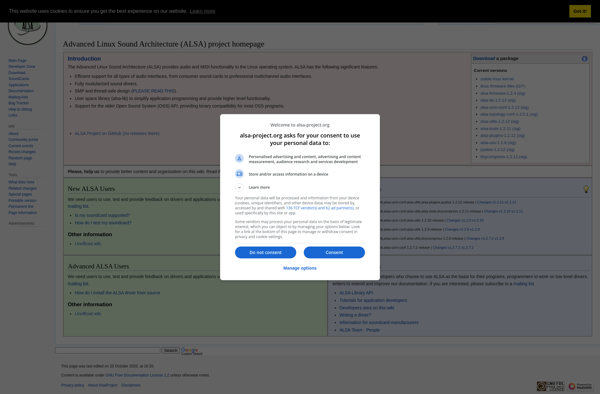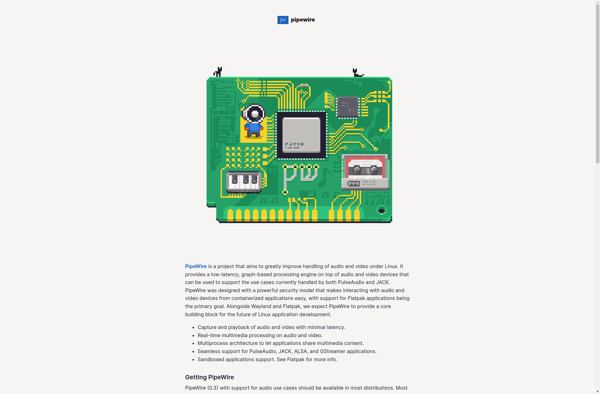Advanced Linux Sound Architecture

Advanced Linux Sound Architecture: Software Framework for Audio Functionality
The Advanced Linux Sound Architecture (ALSA) is a software framework and set of components that provides audio functionality to the Linux operating system. It supports audio devices, mixing, routing, formats, and other features to handle audio input, output and processing.
What is Advanced Linux Sound Architecture?
The Advanced Linux Sound Architecture (ALSA) is a software framework and set of components that provides audio functionality to the Linux operating system. It was designed to replace the original Open Sound System (OSS).
ALSA provides kernel driven audio device drivers for sound cards and related hardware. It supports audio devices, mixing, routing, formats like MIDI, MP3, WAV and more. It handles audio input, output and processing.
Some key capabilities include:
- Hardware device drivers for sound cards, HD audio controllers and USB audio interfaces
- Plugins for effects, mixing, routing and other audio functionality
- Configurable user settings for volumes, channels, sampling rates, etc.
- Integration with higher level APIs like PortAudio, SDL, OpenGL and more
- Support for multi-channel audio with capabilities like surround sound
- Low latency for playback and recording
ALSA is the standard for sound on Linux. It provides capabilities for complex professional audio applications while remaining efficient enough for consumer devices like laptops and embedded systems.
Advanced Linux Sound Architecture Features
Features
- Modular architecture allowing support for a wide variety of audio devices and formats
- Kernel and user-space APIs for audio device drivers and audio applications
- Mixing, routing, sample rate conversion, plug-in infrastructure
- MIDI synthesizer support
- Sample accurate audio timing
- Multi-channel audio support
Pricing
- Open Source
Pros
Cons
Official Links
Reviews & Ratings
Login to ReviewNo reviews yet
Be the first to share your experience with Advanced Linux Sound Architecture!
Login to ReviewThe Best Advanced Linux Sound Architecture Alternatives
Top Audio & Music and Audio Drivers & Libraries and other similar apps like Advanced Linux Sound Architecture
Here are some alternatives to Advanced Linux Sound Architecture:
Suggest an alternative ❐PulseAudio

PipeWire

AudioBus
